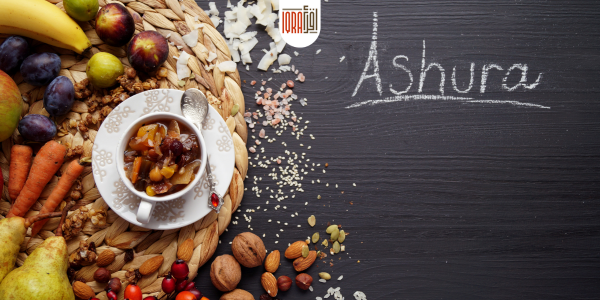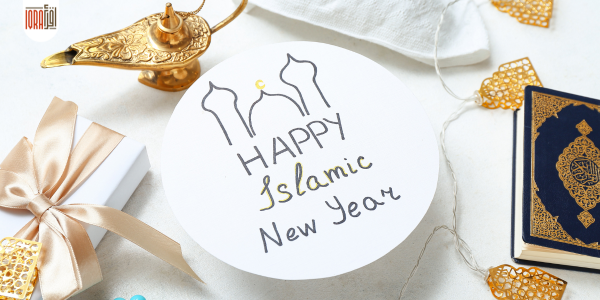As the crescent moon marks the start of Shaban, the eighth month of the Islamic lunar calendar, Muslims around the world focus their hearts and minds on spiritual preparation and reflection. Shaban, nestled between Rajab and Ramadan, provides a unique opportunity to strengthen our faith, seek forgiveness, and prepare for the blessed month of Ramadan. This blog post delves into the significance of Shaban, its benefits, and how to make the most of this time to advance your spiritual journey.
Embrace the Blessings of Shaban
Shaban has a special place in Islam, with numerous hadith emphasizing its benefits. The Prophet Muhammad (peace be upon him) declared, “Shaban is my month,” encouraging Muslims to fast and pray during this time. It is time to evaluate ourselves and seek Allah’s forgiveness, making amends for our shortcomings.
Why Shaban Matters
- A Prelude to Ramadan: Shaban serves as a preparatory phase for Ramadan. By increasing acts of worship such as fasting, prayer, and reading the Quran, we can smoothly transition into the heightened spiritual atmosphere of Ramadan.
- Night of Baraat: One of the highlights of Shaban is the Night of Baraat (Laylat al-Baraat), which occurs on the 15th night. It’s believed that on this night, Allah descends to the lowest heaven and forgives sins abundantly. Engaging in extra prayers, recitation of the Quran, and making dua (supplications) are highly encouraged.
- Fasting in Shaban: The Prophet Muhammad (peace be upon him) fasted more in Shaban than in any other month except Ramadan. Fasting during Shaban can help us prepare our bodies and souls for the upcoming fasts of Ramadan.
References: Why is the Month of Shaban Important?
How to Maximize the Benefits of Shaban
1. Increase in Voluntary Fasts
- Rationale: The Prophet Muhammad (peace be upon him) used to fast more in Shaban than in any other month, aside from Ramadan. Voluntary fasting during Shaban helps prepare the body and soul for the upcoming fasts of Ramadan.
- Action: Fast on more days throughout Shaban, especially on Mondays and Thursdays, as these days are Sunnah fasting days throughout the year.
2. Engage in Night Prayers (Tahajjud)
- Rationale: Night prayers are a significant way to seek closeness to Allah, especially during the nights of Shaban.
- Action: Dedicate a portion of the night for extra prayers beyond the obligatory five daily prayers. The last third of the night is especially valuable for Tahajjud prayers.
3. Recite and Reflect on the Quran
- Rationale: Shaban is a time to reconnect with the Quran and increase your interaction with it before Ramadan begins.
- Action: Set a daily Quran reading goal. Aim to complete a full recitation of the Quran in Shaban as preparation for doing so in Ramadan.
4. Seek Forgiveness (Istighfar)
- Rationale: Shaban is an opportune time to seek forgiveness for past sins and purify oneself before Ramadan.
- Action: Recite Astaghfirullah (“I seek forgiveness from Allah”) frequently, especially after prayers and before sleeping.
5. Give Charity (Sadaqah)
- Rationale: Charity cleanses wealth, purifies the soul, and brings blessings from Allah.
- Action: Donate to those in need, support charitable projects, and help the poor and orphans.
6. Make Dua and Set Intentions for Ramadan
- Rationale: Dua is a powerful tool for communicating with Allah, and setting your intentions for Ramadan can help orient your actions towards spiritual growth.
- Action: Regularly make dua for yourself, your family, and the Muslim Ummah. Ask Allah to allow you to reach Ramadan and to make it a means of purification and success.
References: Serenity in Remembrance: Unveiling the Beauty of Daily Dhikr
7. Reconnect with the Community
- Rationale: Strengthening ties of kinship and community is emphasized in Islam and can lead to a more fulfilling spiritual life.
- Action: Reconnect with family members, visit friends, and engage with your local Muslim community to foster a sense of belonging and mutual support.
8. Attend Islamic Lectures and Workshops
- Rationale: Knowledge is key to acting upon the deen (religion) correctly, and Shaban is a great time to increase your understanding of Islam.
- Action: Participate in Islamic events, whether online or in person, that are aimed at teaching and preparing Muslims for Ramadan.
9. Reflect and Make Personal Improvements
- Rationale: Self-reflection leads to self-improvement, which is essential before entering the sacred month of Ramadan.
- Action: Assess your strengths and weaknesses. Make a plan to overcome your shortcomings and enhance your strengths in preparation for Ramadan.
By focusing on these practices, you can make the most of Shaban and enter Ramadan with a purified heart, a prepared mind, and a strengthened soul, insha’Allah (God willing).
Dua for Sha’ban
One of the most famous duas to recite during Sha’ban is the one that Prophet Muhammad (peace be upon him) used to say:
“O Allah, bless us in Rajab and Sha’ban, and let us reach Ramadan.” [Tabarani al-Awsat: 3939]
This simple yet profound dua expresses the believer’s desire to live to witness Ramadan and benefit from its blessings.
Tasbeeh for Sha’ban
Engaging in tasbeeh is a form of zikr, “remembrance of Allah,” that purifies the heart and soul. While there’s no specific tasbeeh prescribed exclusively for Sha’ban, Muslims are encouraged to increase their remembrance of Allah throughout this month. Common phrases include:
- SubhanAllah (سبحان الله): “Glory be to Allah.”.
- Alhamdulillah (الحمد لله): “All praise is due to Allah.”.
- Allahu Akbar (الله أكبر): “Allah is the Greatest.”.
- La ilaha illallah (لا إله إلا الله): “There is no deity but Allah.”.
Hadiths Related to Sha’ban
- Significance of Fasting in Sha’ban: Aisha (may Allah be pleased with her) reported that she asked the Prophet Muhammad (peace be upon him) about his fasting in Sha’ban, and he replied, “It is a month people neglect between Rajab and Ramadan. In that month, the deeds are raised up to the Lord of the Worlds, so I like my deeds to be raised while I am fasting.” (Narrated by Nasa’i)
- The Night of Mid-Sha’ban: Aisha (RA) also reported that the Prophet (peace be upon him) said: “The night of the middle of Sha’ban, let it not pass you by, for in it Allah forgives more than the number of hairs on the sheep of Kalb.” However, scholars have different opinions on the authenticity of hadiths related to the specific virtues of the night of mid-Sha’ban (Laylat al-Baraat), and it’s always best to consult with knowledgeable scholars or reliable sources for guidance.
- Preparing for Ramadan: It’s also reported that the Prophet Muhammad (peace be upon him) said, “Sha’ban is my month, Rajab is Allah’s month, and Ramadan is the month of my Ummah (community).” This hadith, although its authenticity is debated among scholars, highlights the importance of Sha’ban as a time of preparation for Ramadan.
Join Our Spiritual Journey
As we embrace the blessings of Shaban, we invite you to deepen your connection with Islam and prepare for Ramadan with us. Sign up for our program for personalized Quranic learning and spiritual growth. Explore our courses to enrich your understanding of the Quran and Islamic practices.
Reflect and Prepare
Shaban is not just a month; it’s a spiritual journey that prepares us for the sacred month of Ramadan. By engaging in additional worship, fasting, and acts of charity, we can purify our hearts and strengthen our faith.
Let’s make the most of Shaban by increasing our good deeds, seeking forgiveness, and preparing ourselves physically and spiritually for Ramadan. Remember, it’s the small, consistent steps that lead to significant changes in our faith journey.
Conclusion
As we progress through Shaban, let us remember its significance and the opportunity it provides for spiritual growth. It is a time to reflect, seek forgiveness, and get ready for the blessed month of Ramadan. Take advantage of this month to improve your spiritual practices, and do not forget to sign up for our program to continue your Islamic education. Let us embrace Shaban’s blessings and prepare our hearts for Ramadan’s arrival.
May Allah accept our efforts and allow us to reach Ramadan in the best state of faith and piety. Ameen.
References:





0 Comments
Oops comments are disabled